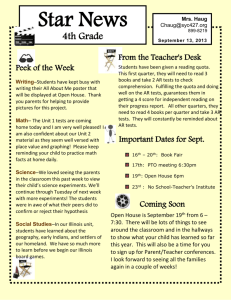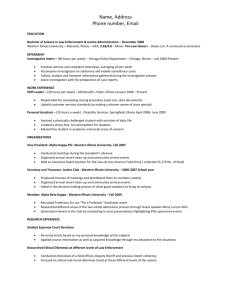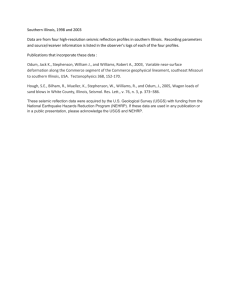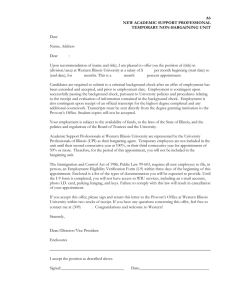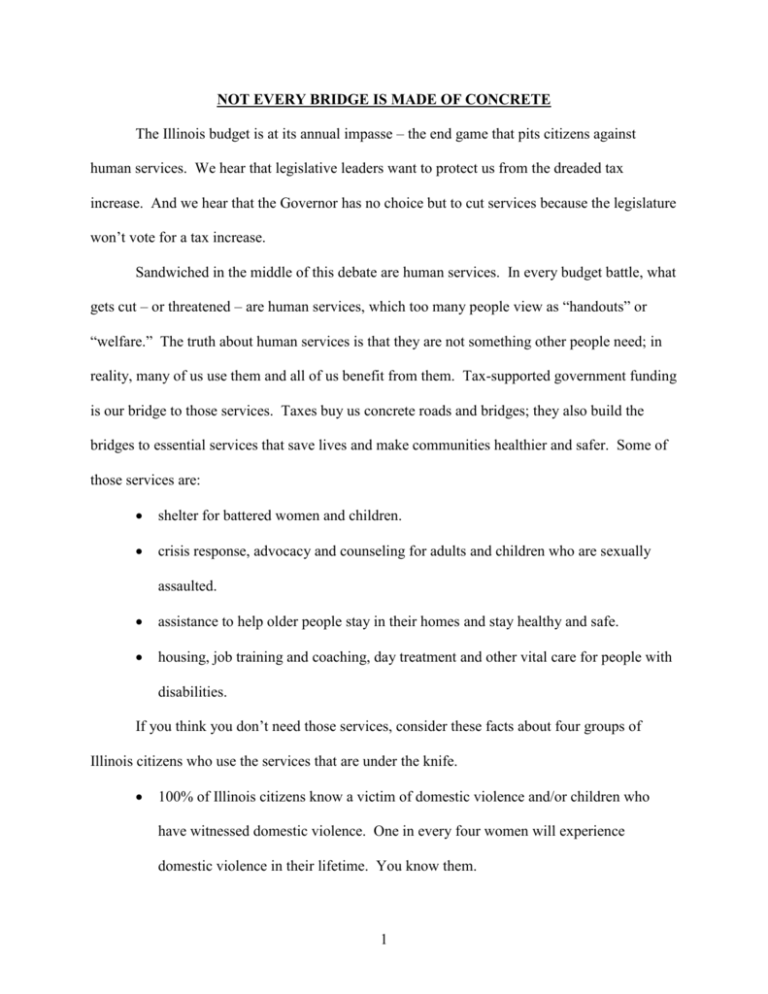
NOT EVERY BRIDGE IS MADE OF CONCRETE
The Illinois budget is at its annual impasse – the end game that pits citizens against
human services. We hear that legislative leaders want to protect us from the dreaded tax
increase. And we hear that the Governor has no choice but to cut services because the legislature
won’t vote for a tax increase.
Sandwiched in the middle of this debate are human services. In every budget battle, what
gets cut – or threatened – are human services, which too many people view as “handouts” or
“welfare.” The truth about human services is that they are not something other people need; in
reality, many of us use them and all of us benefit from them. Tax-supported government funding
is our bridge to those services. Taxes buy us concrete roads and bridges; they also build the
bridges to essential services that save lives and make communities healthier and safer. Some of
those services are:
shelter for battered women and children.
crisis response, advocacy and counseling for adults and children who are sexually
assaulted.
assistance to help older people stay in their homes and stay healthy and safe.
housing, job training and coaching, day treatment and other vital care for people with
disabilities.
If you think you don’t need those services, consider these facts about four groups of
Illinois citizens who use the services that are under the knife.
100% of Illinois citizens know a victim of domestic violence and/or children who
have witnessed domestic violence. One in every four women will experience
domestic violence in their lifetime. You know them.
1
100% of Illinois citizens know a sexual assault victim. One in three girls and one in
six boys will be sexually abused before age 18 and 80% of high school girls
experience sexual harassment. You know these women and children.
100% of Illinois citizens are elderly, know someone who is elderly and/or will one
day be elderly.
100% of Illinois citizens have a disability or know someone with a disability, and/or
will have a disability at some point in their lives. Twenty percent of citizens will
experience a disability in their lifetime and 41% of citizens age 65 and over report
some type of disability. Again, you know them. They are your relatives, neighbors
and friends. They work with you, worship with you, nod to you as you walk through
the park, grocery store, restaurant, life.
Even if we limit our discussion to these four groups, it is clear that we are all touched
by the cuts being inflicted by the General Assembly and the Governor.
Agencies that serve people and communities cannot operate with a 50% budget. Nor can
they remain viable with a “wait and see” or “stop and start” approach. They need to know that
they can afford to continue a hotline, offer shelter to a victim, send a worker to the senior high
rise or secure a job for an adult with a developmental disability. They need to know they can
employ their staff, pay the rent, keep the lights on. If they can’t promise these basics, staff will
leave, leases will lapse, phone lines will go dead and the lights will go out. It is a darkness we
cannot afford.
Knowing this, every citizen must take 15 minutes to call their legislators and Governor
Quinn. Tell them you expect a budget solution that works. Tell your elected officials you need
them to step up and stand up for you. Tell legislative leaders to lead for you and your fellow and
2
sister citizens. Tell them you will pay more taxes. Ask them to manage the money to serve all
of us, rather than political interests.
One more thing. People in crisis need a hotline to call; battered and raped women need
support at the emergency room; home-based seniors need meals and people in wheelchairs often
need a ride to work. To our legislators and Governor we say don’t sacrifice the health, welfare
and safety of individuals, families and communities by cutting human services’ budgets. Quit
using human services as a pawn.
Lead. We need you to lead. We need you to break through the standoff. Use your skills,
talents and influence to create a budget that works. You know what it costs to run a domestic
violence shelter, a sexual assault crisis center, an elder care program, a disability services
program and every other service in the state. Talk to citizens and your colleagues about what it
costs to run a state that serves its citizens. Then raise the money and put it where it needs to be.
Build all the bridges Illinois needs.
Polly Poskin, Executive Director
Illinois Coalition Against Sexual Assault
Vickie Smith, Executive Director
Illinois Coalition Against Domestic Violence
3


